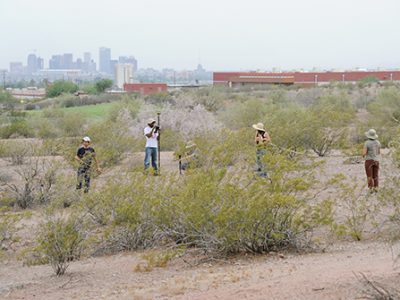Global Patterns in Stream Energy and Nutrient Cycling
Project summary: Dissolved organic matter (DOM) provides a significant source of energy and nutrients to ecosystems and its biogeochemical cycling is inextricably linked to dissolved inorganic nitrogen (DIN). In stream ecosystems in particular, there is considerable spatial and temporal variation in the relationships between the different fractions of DOM (dissolved organic carbon and nitrogen) and DIN…. Read more »




